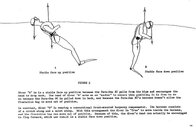On my recent dives where the SurfGF was 250 or more when I left the bottom, at the end of the deco it almost seems to be about 1 minute per -1 SurfGF. Yes, roughly.Yea I assumed that 2mins would be 100% because I use 80 for GFHi too.
2 mins of skipped deco is actually more skipped for me since I would normally do the 1m per meter after the last stop.
So... two mins would equate to a SurfGF around 82.




